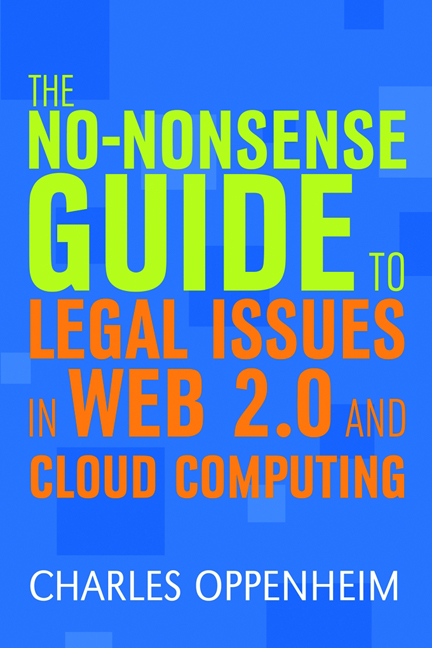Summary
Introduction
The focus of library and information professionals is the handling of information, increasingly these days in electronic form. They are concerned with the creation, dissemination, storage, retrieval, curation and disposal of said information. All these activities involve copyright issues, and it is for this reason that copyright looms so large in the concerns of the professionals. There is therefore no apology for the fact that this chapter, on copyright issues in Web 2.0, is the longest in this book. The chapter examines how one acquires copyright, the vexed question of copyright ownership, the types of materials protected by copyright, the lifetime of copyright works, the restricted acts that only the rights holder can authorize (or refuse to authorize), and issues to do with infringement and how to copy third party materials legally. There is also a discussion on orphan works, differences between UK law and other laws, and recent developments in UK copyright law. Sections of the chapter focus on where copyright law interacts with Web 2.0.
Recent developments, such as the UK's 2010 Digital Economy Act (discussed further below), have highlighted the tensions between copyright owners and users of copyright works in the current environment of ready availability of machine readable material and contempt for old-fashioned business models among the young. Information professionals are caught up in this tension. They are all keen to respect copyright, but at the same time are finding that governments are passing legislation that hinders rather than helps them in their professional roles.
UK copyright law is governed by the 1988 Copyright, Designs and Patents Act (hereinafter called the CDPA). Despite its title, the Act says relatively little about the law of patents or registered designs, but it is the key piece of legislation on copyright. Nonetheless, the CDPA is not the only piece of legislation of relevance. Numerous statutory instruments, such as the snappily titled Copyright (Librarians and Archivists) (Copying of Copyright Materials) Regulations 1989, supplement the CDPA, and some other primary legislation, such as the Public Lending Right Act 1979 and the Digital Economy Act 2010 are also relevant.
- Type
- Chapter
- Information
- Publisher: FacetPrint publication year: 2012



